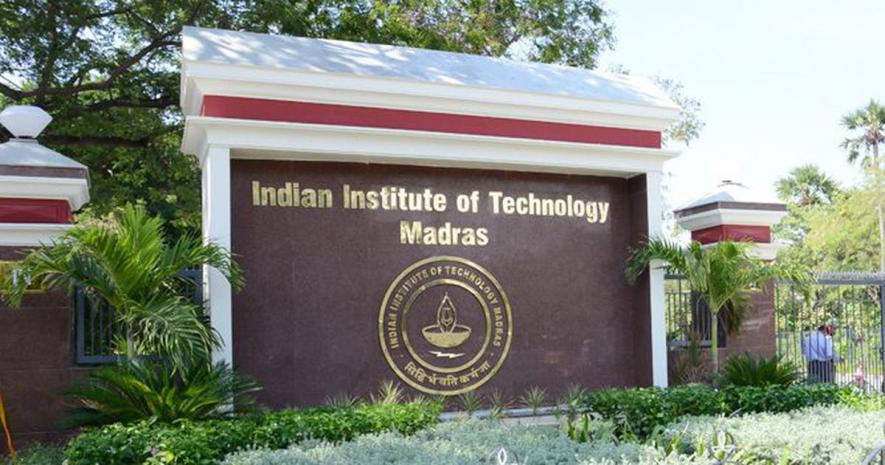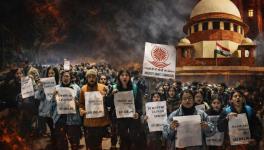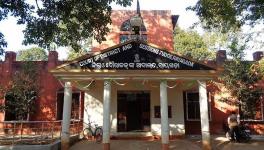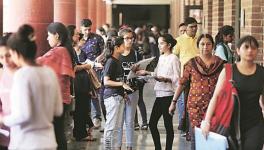'Discrimination, Pressure' Force Marginalised Students to Quit IITs

Image Courtesy: Official website
More than 19,000 students from Other Backward Classes (OBCs), Scheduled Castes (SCs) and Scheduled Tribes (STs) have dropped out of Central universities, Indian Institutes of Technology (IITs) and Indian Institutes of Management (IIMs) in the past five years.
In a written reply to DMK’s Rajya Sabha member from Tamil Nadu, Tiruchi Siva, earlier this month, Union minister of state for education Subhas Sarkar said that 6,901 OBCs, 3,596 SCs and 3,949 STs had dropped out of Central universities between 2018 and 2023. Similarly, 2,544 OBC students, 1,362 SCs and 538 STs dropped out of IITs. Besides, 133 OBC, 143 SC and 90 ST students had dropped out of IIMs.
Discrimination, tough syllabi and cut-throat competition are the main reasons for the increasing number of students from marginalised backgrounds quitting such prestigious institutes.
An IIT Bombay student pursuing a master’s told Newsclick that “students feel extreme pressure the moment they enter the campus”.
“It is more difficult for a student from a marginalised community like me. There is constant pressure indirectly from teachers and fellow students to prove myself and show I can be in the university,” he said requesting anonymity.
Another big issue is the lack of sensitisation among students. “The administration has made little effort to sensitise students of the general category towards marginalised communities. Had the administration taken this issue more seriously, the situation would not have been so bad,” the student said.
Sarkar, however, claimed in his reply that the government had “taken various steps like fees reduction, establishing more institutes, making priority access to national-level scholarships to aid students with poor financial background”.
Another issue is marginalised students dying by suicide. A PhD student of IIT Madras committed on March 31—the third such incident in one-and-a-half months.
On February 12, a dalit IIT Bombay student named Darshan Solanki committed suicide apparently due to caste discrimination on the campus.
When another MP from Tamil Nadu, MDMK’s Vaiko asked Sarkar last month about cases of caste discrimination at IITs and Central universities in the past five years and the number of SC/ST student suicides at these institutes and the reasons for the same, he said, “No cases of caste discrimination and alienation in SC/ ST students have been reported from IITs in the last five years.”
When Vaiko asked about discrimination cases in other Central universities, Sarkar said, “With regard to Central universities, no data of caste discrimination is maintained centrally.”
The minister added that suicides involving two SC students in 2018, one in 2019, one SC student and one ST student in 2022, and two SC students in 2023 had been reported in the case of IITs. He also claimed that in the case of Central universities, suicides by four SC students in 2017, two SC students in 2018 and one SC student in 2021 were reported.
Seeing the rate at which marginalised students were committing suicide, Mahesh, a PhD student in one of the most prestigious IITs, decided to start a support group in 2014.
“We were denied help in cases of caste discrimination on the campus. No one came to our rescue. When a student committed suicide in 2014, we decided to start a group to help students facing discrimination,” he told Newsclick.
The support group also gives suggestions and plans to the institute’s administration to improve the lives of marginalised students on the campus. However, none of the suggestions have been implemented, Mahesh said.
Students don’t approach the campus SC/ST Cell due to
bad experiences, he added. “Others believe that complaining to the Cell could make their life on the campus difficult as their peers would look down upon them. In 50% of cases of caste-based remarks, students say that they meant it as a joke without realising the impact on us,” Mahesh added.
Get the latest reports & analysis with people's perspective on Protests, movements & deep analytical videos, discussions of the current affairs in your Telegram app. Subscribe to NewsClick's Telegram channel & get Real-Time updates on stories, as they get published on our website.
























